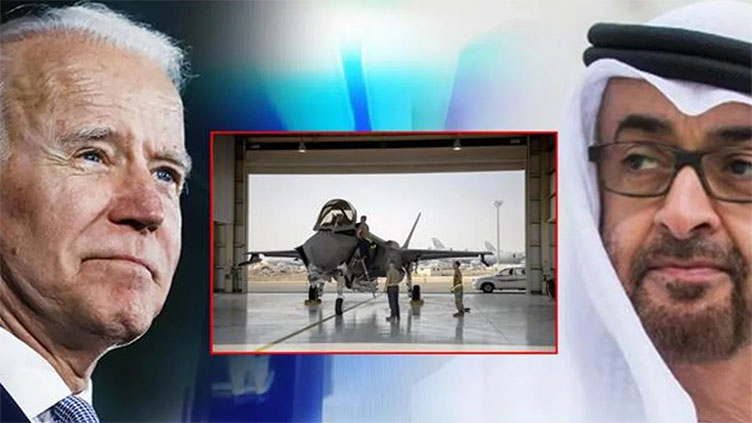UAE protests stringent Biden conditions for jet fighters

World
United Arab Emirates threatened Tuesday to scrap its mega-purchase of US F-35 fighter jets.
WASHINGTON (AFP) - The United Arab Emirates threatened Tuesday to scrap its mega-purchase of US F-35 fighter jets, protesting stringent conditions amid Washington s concerns on China, but both sides said they hoped to resolve the dispute.
President Joe Biden has pledged greater oversight over the state-of-the-art planes after the $23 billion arms package was pushed through by his predecessor Donald Trump in what was seen as a reward for the Gulf State s recognition of Israel.
"The UAE has informed the US that it will suspend discussions to acquire the F-35," an Emirati official said.
"Technical requirements, sovereign operational restrictions and cost/benefit analysis led to the re-assessment," the official said.
The statement comes days after the UAE agreed to buy a record 80 Rafale warplanes from France for 14 billion euros ($15.8 billion) during a visit by President Emmanuel Macron, indicating the oil-rich Gulf state has alternatives.
But the Emirati official said that the United States "remains the UAE s preferred provider" for advanced equipment and, despite the declared suspension of F-35 talks, an Emirati delegation is visiting Washington for talks this week.
"We are hopeful that we can work through any outstanding issues," a State Department spokesperson said.
Pentagon spokesman John Kirby said it was customary to discuss requirements before transferring technology.
"These end-user requirements and protection of US defense equipment are universal, non-negotiable and not specific to the UAE," Kirby said.
Lawmakers from Biden s Democratic Party unsuccessfully sought to stop the sale, pointing in part to the Gulf state s participation in the bloody Saudi-led offensive in Yemen and its support for Libyan warlord Khalifa Haftar.
US officials have also been increasingly concerned by China s involvement with the US ally, including work at a port near the capital Abu Dhabi.
The Wall Street Journal, which first reported the impasse, said that the United States was insisting on conditions to make sure the F-35s would not be vulnerable to Chinese espionage.
Leading the bid a year ago to stop the sale, Senator Bob Menendez, chairman of the Senate Foreign Relations Committee, voiced alarm at Emirati discussions on military cooperation with both China and Russia.
"Should we not have a definitive commitment from the UAE that that will not move forward?" he asked.
The F-35s are prized for stealth capabilities and versatility with the capacity to gather intelligence, strike deep into enemy territory and engage in air duels.
US ally Israel historically objected to Arab states obtaining the F-35s, seeking to maintain its regional edge, but gave its blessing after the UAE last year became the first new Arab country in decades to recognize the Jewish state.
Israel and the UAE have found common cause on concerns about Iran, although a top Emirati official this month visited Iran, where officials voiced hope for smoother ties.

